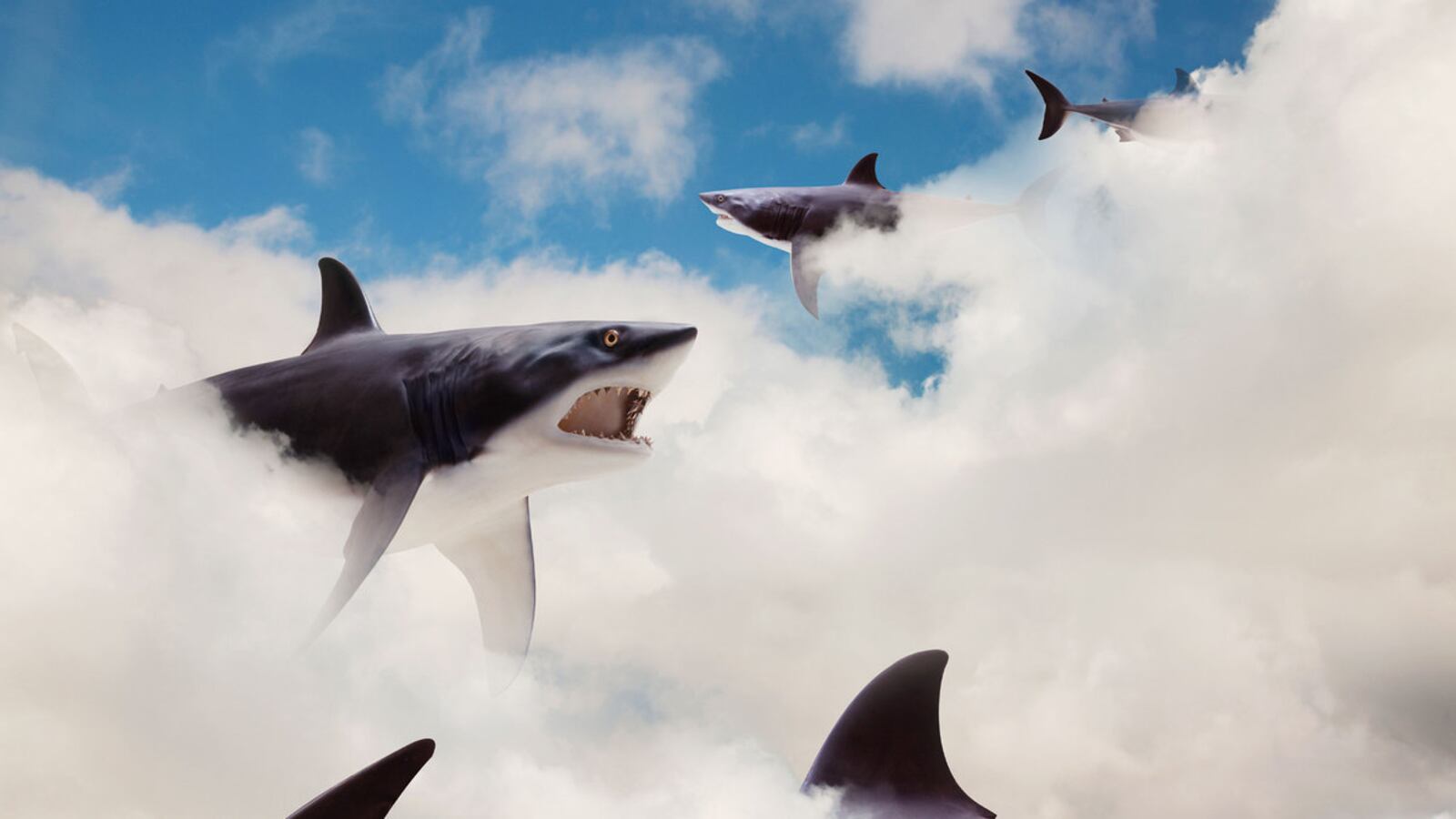For weeks I have attempted to enlist friends to come to the beach with me. Many have declined this invitation, not in the name of social distancing but for fear of another deadly threat lurking in the water: sharks.
Visions of pointed grey fins cutting through waves have long been the stuff of summer nightmares, thanks to that forever-terrifying 1975 blockbuster, Jaws. This year in particular, though, the panic has peaked.
Reports of sightings in the Northeast are on the rise, maybe because frightened beach-goers are paying more attention to the water after a 63-year-old New Yorker named Julie Dimperio Holowach was attacked and killed by a great white in Maine last month.
According to the AP, this tragedy was the first reported shark fatality in the entire history of the state. Tracking Sharks, a blog that tallies attacks and describes itself as “the toothiest place on the web,” has counted 37 shark attacks this year across the world, seven of which have been fatal.
In the United States alone, there have been 14. The two that resulted in death were off California and Maine. Of incidents that were not fatal, seven occurred off Florida, one off Hawaii, two off North Carolina, and another one off California.
James Sulikowski, a researcher at Arizona State University who specializes in Northeastern sharks, told the AP that there are more sharks in the water this year because there are more seals for them to feast upon. The seal population has grown steadily since the Marine Mammal Protection Act of 1972. Sharks want them as prey; humans are caught in the middle.
That includes humans like Mike Tyson, who took part in Discovery Channel’s famed Shark Week. The former boxer “squared off” with a shark “in the name of research,” according to Entertainment Weekly.
Tyson described the experience to the New York Post: “I was scared all the way through and was just trying to get through it alive. I’m a scary guy but not when it comes to adventurous stuff. One shark kept bumping me and I’m like, ‘What the hell do you want?’”
So Mike Tyson did not fix the fractured relationship between sharks and humans, and I am still out of a beach buddy. But in a year as tumultuous as 2020, the increased presence of these predators seems almost quaint.
Historically, shark-mania has been tabloid gold, especially during lazy, slow summer news cycles. (Remember those?) When a “rogue” great white terrorized the Jersey Shore in 1916 and took four lives in separate attacks, newspapers dubbed the menace a “sea monster.”
Decades later, in 2001, a series of gnarly attacks—including one on an 8-year-old Florida boy and two more fatal ones in Virginia and North Carolina—dominated reporters’ attention. The attacks on Sept. 11 promptly thrust the so-called Summer of Sharks from front pages. Years later, some journalists have called out their past reporting as somewhat hysterical.
Humans have a long tradition of making things about us, our shark scaries exist because we think they pose a threat to us. But we’re not so great to them either.
Great whites are listed on the International Union for Conservation of Nature Red List as a “vulnerable species,” likely to become endangered due to the fact that we like to hunt their fins and teeth. They also have a habit of getting caught in the mesh shark nets put up to protect beaches. So sharks and humans continue to be terrible to each other. It is a time-honored American summer past time that even COVID cannot kill.
It is true that sharks are frightening. As I sit in my apartment, feet firmly planted on vinyl flooring, I shudder at the thought of my legs in murky ocean water, brushing up against—something.
Jaws ruined the beach for an entire generation. Part of its genius was that it found a way to extract deep horror out a familiar, safe space—the lazy days of summer.
Now, it may be just as hot outside, but the season looks different. We are living with countless threats to our existence and seemingly no end to a barrage of scary shit. So yeah, there are sharks in 2020. But this year there are far deadlier dangers all around us on dry land.







